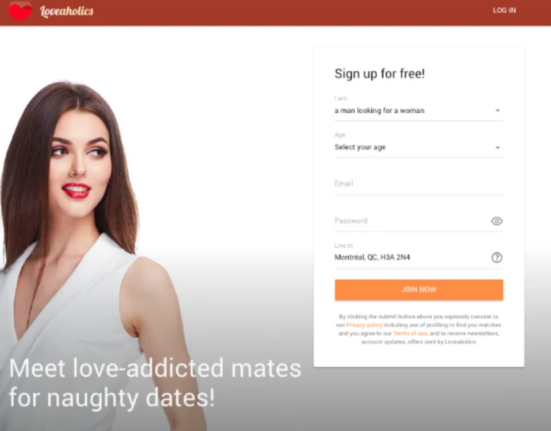Last Updated on August 14, 2025 by Rachel Hall
- 2 Personal Deal Breakers in a Relationship You Should Never Ignore – With Full Detail on Each One
- Deal Breaker #1 – When Your Partner Lies: The Trust Killer in Every Relationship
- Deal Breaker #2 – Bigotry and Controlling Behaviour: Threats to You, Your Friends or Family, and Your Freedom
- Why These 2 Deal Breakers Are More Harmful Than Other Bad Relationship Patterns
- What to Do if Your Partner Shows These Signs
- How to Avoid Bad Relationship Patterns in the Future
- Final Thoughts – Choosing a Partner Who Respects Your Personal Values
- FAQ – Answering Common Questions About Relationship Deal Breakers
2 Personal Deal Breakers in a Relationship You Should Never Ignore – With Full Detail on Each One
When it comes to any relationship, there are countless moments when you might be tempted to give your partner the benefit of the doubt. You might tell yourself it is just a phase or that they will change over time. But there are deal-breakers so severe that to ignore them is to make a decision that could undermine your long-term happiness, health, and even safety.
The 2 we will explore here are not minor disagreements over taste or habits. They are absolute non-negotiables that, if left unaddressed, will become corrosive forces in any marriage, committed partnership, or even during the early stages when you first date someone. These issues are supported by both common sense and psychology, and they are warning signs you should never overlook.
Deal Breaker #1 – When Your Partner Lies: The Trust Killer in Every Relationship
Trust is the foundation of any healthy relationship. Without it, even the most passionate connection will wither. A single lie might seem like “no big deal,” but repeated dishonesty changes the way you view your partner. Over time, you start to think twice before believing what they say, and that constant doubt chips away at the quality of the connection.
In psychology, lying in a relationship is more than a matter of poor ethics; it is a form of betrayal. It causes emotional instability, creates resentment, and often leads to controlling behaviour on either side — one partner monitoring, the other hiding.
Even small untruths — about a past job, an evening out, or contact with friends or family — can be damaging. They cause you to ask yourself whether the partner you thought you knew is really who they are. And in a committed marriage or long-term partnership, the damage is magnified because so much depends on accurate information to make joint decisions about finances, children, and the future.
Personal Signs Your Partner May Be Lying More Than You Think
Spotting dishonesty early can help you avoid investing years in the wrong relationship. Common signs include:
- Inconsistencies when they recount the same thing twice.
- Withholding personal details that directly affect you, for example, omitting that they lost a job.
- Evading direct questions or giving vague answers when you ask for clarity.
A pattern of these behaviours is a clear sign that trust is at risk.
Why You Should Never Ignore This Behaviour
When you ignore dishonesty, you give it the favour to continue. This is not an exception you can safely make. Even a small lie has significant consequences:
- It undermines trust, making it harder to find emotional stability.
- It can trigger overthinking, damaging your mental health.
- It sets a precedent for further deception, which can spiral beyond repair.
If your partner cannot be honest about the small things, how can you rely on them for important decisions?
Deal Breaker #2 – Bigotry and Controlling Behaviour: Threats to You, Your Friends or Family, and Your Freedom
While dishonesty attacks trust, prejudice and controlling behaviour erode your freedom and sense of self. Bigotry can take many forms — racism, sexism, intolerance towards a group, or belittling beliefs that are different from their own.
At first, these attitudes might seem harmless or disguised as a “personal preference.” But over time, partners may become bolder in expressing them, particularly once they feel secure in the relationship. This is where it crosses into bad territory: when they start trying to set rules about who you can see, how you dress, or which opinions you can express.
Such control often leads to isolation from your friends or family, under the pretence that they are “protecting” you. In reality, they are narrowing your support network, making you more dependent on them.
How Control Damages Relationships Beyond Repair
The effects are wide-ranging and deeply harmful:
- Preventing you from attending important events with friends or family.
- Criticising your personal life choices, from your job to your hobbies.
- Using guilt or intimidation to force compliance with their belief system.
In the worst cases, controlling behaviour coupled with prejudice can lead to emotional abuse. This is not something you can simply “work on” — it’s a pattern that must be confronted head-on.
Why These 2 Deal Breakers Are More Harmful Than Other Bad Relationship Patterns
Some bad habits in a relationship — like forgetting to make plans or being untidy — can be addressed. But dishonesty and control strike at the very core of what makes a partnership viable. They destroy trust, limit your independence, and stop you from being able to grow.
If you stay in a relationship where these patterns exist, you risk becoming someone who accepts less than they deserve. No amount of attraction, shared history, or “good days” will outweigh the significant harm these deal-breakers cause.
What to Do if Your Partner Shows These Signs
If you find that your partner is lying or showing controlling tendencies, you need to act quickly:
- Ask clear, direct questions. Do not accept evasive answers.
- Set strong boundaries around what is and isn’t acceptable.
- Consider whether you can rebuild trust without compromising your values.
- Have a plan for what will happen if nothing changes.
Remember, it’s not your job to “fix” a partner who refuses to acknowledge the problem. You deserve a relationship that is safe, respectful, and free from toxic control.
How to Avoid Bad Relationship Patterns in the Future
The best way to handle these issues is to prevent them entirely:
- In the early date stage, pay attention to how they talk about people from different backgrounds.
- Watch how they treat friends or family — it’s often a sign of how they will treat you.
- Do not ignore red flags because the partner “seems” like a fit in other ways.
Taking the time to know someone’s values and whether they respect yours is the only way to ensure your relationship will last for the right reasons.
Final Thoughts – Choosing a Partner Who Respects Your Personal Values
A healthy relationship will never require you to sacrifice your self-respect or compromise your important beliefs. If your partner is honest, respectful, and supportive, you will have the space to grow together.
These 2 deal breakers — dishonesty and controlling prejudice — are not quirks or misunderstandings. They are warning signs that the relationship may be fundamentally unsafe. By recognising them early and refusing to ignore them, you protect not just your heart, but your future.
FAQ – Answering Common Questions About Relationship Deal Breakers
Q: Are these deal breakers the same as red flags?
A: Red flags can be early warning signs; deal-breakers are the absolute behaviours that should end a relationship immediately.
Q: Can a partner change controlling behaviour or stop lying?
A: Change is possible but rare without significant self-awareness, professional help, and consistent effort.
Q: Should you ever make an exception?
A: Not when it comes to honesty or respect — those are non-negotiable in any relationship.

Rachel Hall, M.A., completed her education in English at the University of Pennsylvania and received her master’s degree in family therapy from Northern Washington University. She has been actively involved in the treatment of anxiety disorders, depression, OCD, and coping with life changes and traumatic events for both families and individual clients for over a decade. Her areas of expertise include narrative therapy, cognitive behavioral therapy, and therapy for traumatic cases. In addition, Rachel conducts workshops focusing on the psychology of positive thinking and coping skills for both parents and teens. She has also authored numerous articles on the topics of mental health, stress, family dynamics and parenting.








Leave feedback about this